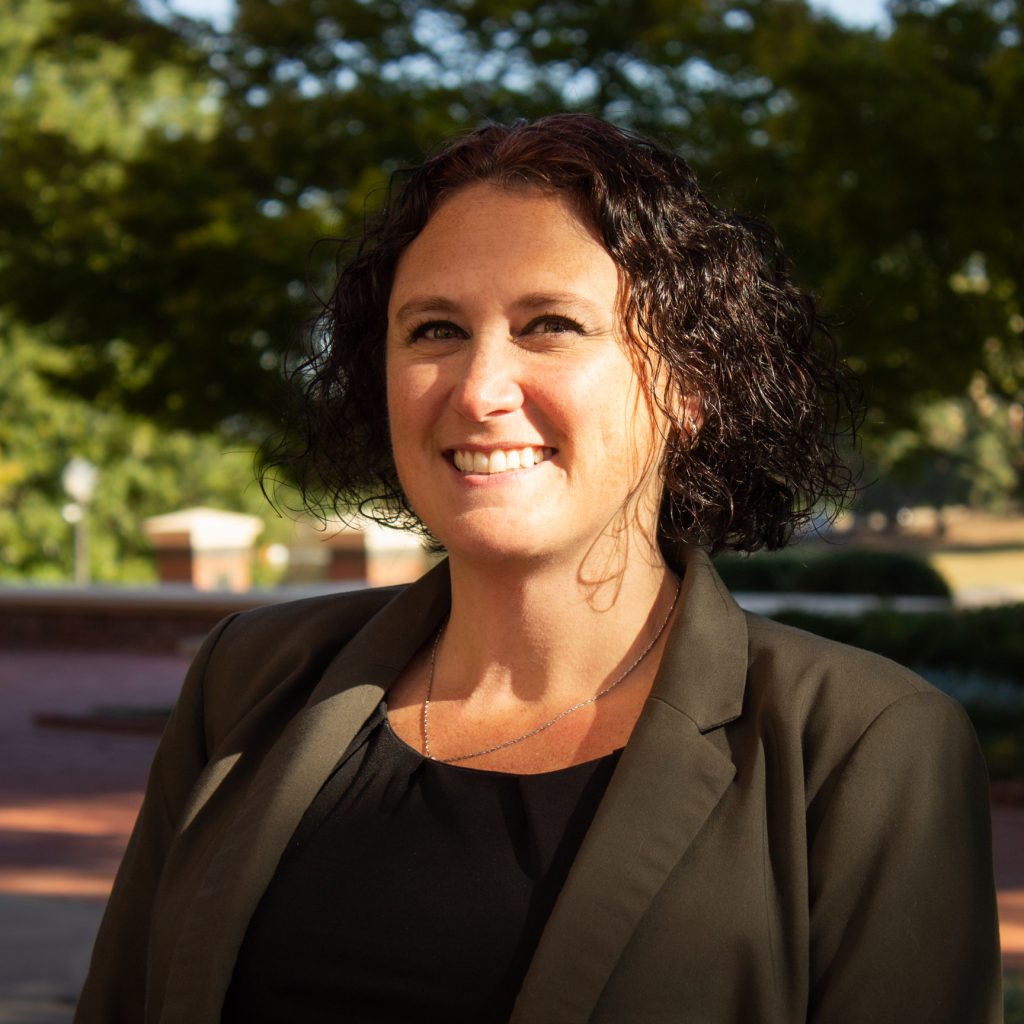By: Dr. Rachelle Savitz, Clemson University
Navigating Your Own Trauma

As the past weeks have unfolded, like many of my students and colleagues, the uncertainty of tomorrow, next week, the fall, and the world have caused me to struggle. I find myself experiencing life in a new way that consistently revolves around questioning my surroundings. For instance, when I went to the grocery store weeks ago, the amount of people walking around without a mask, coughing on others, and even one person sweating profusely caused my alarm bells to ring. I rushed home and realized I was in a state of panic; immobilized by fear of the unknown and fear of this potentially fatal disease. This traumatic experience continues to stay with me, and in fact, I have only gone back to the grocery store one additional time. Although my second experience made me feel safer because so many were wearing masks and there were limits on how many people were in the store, I was still worried and overcome with the feeling of sadness. Such a regular day-to-day situation, going to the grocery store, or any closed in space, has now become an immediate concern for me and a risk that I am not comfortable taking.
These same feelings continue as I watch news sources and read friend’s threads on social media about the loss of so many. When friends share their inconsolable grief at being unable to say goodbye to their loved one, or when I see the extremely long and growing lines at local food banks and the unparalleled call to support our communities, all of these experiences and moments leave me breathless with a sense of sorrow. These secondary traumatic experiences, and my own circumstances can easily lead to little hope. I often find myself critically reflecting, asking questions, and wondering how to get past this fear and enter a sense of calm and understanding. I wonder how others, students, friends, and colleagues are coping through these uncertain times. I am curious as to their feelings when going out in public, to restaurants or even getting a haircut. I question if I am being overly cautious, too cautious, or if my feelings and precautions are “normal.” Most importantly, I wonder when I will feel safe again. Sadly, none of these questions have immediate and definite answers.

As each day passes, I am constantly attempting self-care, as Kathleen Pennyway described in her post last week. For me this means taking time to get lost in a good book, catching up on a recorded tv show, or calling a friend to share experiences. I quickly learned that by sharing my experiences – my fears, my successes, my failures, and my daily situation, I felt a better sense of hope and calm. I was able to understand that although my experiences are my own, many can relate. Some offer words of wisdom and others relate their own experiences. None provided judgment. This relates to what Elizabeth Dutro shared in her post, and in her very important book, the concept of reciprocal witnessing. Although I did not know this term until recently, I have always understood the power of sharing our stories (testimonies) and having others listen – really listen and provide empathy, is powerful.
Navigating Student Trauma: The Importance of Connection to Heal
In our book, Teaching Hope and Resilience for Students Experiencing Trauma: Creating Safe and Nurturing Classrooms for Learning, Doug, Nancy, and I discuss how teachers can leverage literacies as tools to help our students navigate their lives, building capacity to respond to troubling times. We share how collaborative and meaningful discussions, using texts, and writing can build children’s and adolescents’ resilience. These ideas not only allow teachers to support students’ well-being and social-emotional learning, but they also address required content. But what could this look like in an online environment?
Ways to Leverage Literacies as Tools to Help Students Navigate Their Lives
Discussion to build
Of utmost importance when implementing any of these, is the ability to be a warm-demander, building upon already created teacher-student relationships in an online format. Peer relationships are just as important online, as in person, too. Although different, community can be built and developed. Salena Davis discussed in her post the importance of communication. This not only relates to what Dutro shared, but also aligns with the need for discussion with our students and for them to discuss with their peers. This may relate to sharing their stories, but we can also encourage discussion related to our own content and what they are learning or reading. For instance, I use Voicethread to share my lesson, embedding additional material, such as links to videos. On each slide, I provide my lecture, but add specific questions related to the content or ways to promote connection among the group. Students can respond to me or one another via audio, video, or text. These discussions are asynchronous but allow students to continue building community. Often, my students bring up their own personal connections to the material and relate it to their own lived experiences.
Reading to relate

Another way to support student learning and choice is within our text selection. I recently had a teacher ask me about what book she could assign to her students now that they were remotely learning. My quick response was “what do they want to read?” If there are specific types of analysis questions that this teacher wanted to use, then she could provide an open theme or topic and let students choose their book. By giving her students options in what they read, she can still focus on analysis, the main goal, but also support student motivation to continue reading. Her students could synchronously meet with her and their classmates weekly (more or less) and share pieces of their book that has excited them, things they questioned as they read, or even how the student may have related to the situation, events, or characters. For instance, maybe a student reads about a character facing the death of a loved one. The student may share her own experiences that relate. Or, another student may read about inequities and ask questions of her peers (and the teacher) related to the inequities in her own life or within this current pandemic. Inquiry-based learning is a great way to provide choice in research for classrooms that do not use literature.
Writing to remember
Over the past few weeks, I have had quite a few students, all current teachers, wanting, more importantly, needing to share their experiences. Some created a running online journal with me, where they record their thoughts, feelings, and questions, and then I either respond, ask my own questions, or share my experiences. This may not work for all students, and it could be time consuming for a teacher to journal with all students. Therefore, we can encourage our students to support their own healing through private autobiographical writing. They can then choose if/when to invite other adults or peers to listen. As Kathleen Pennyway mentioned, having an open door, or in these days, an open email policy, is important. We want to ensure that our students and colleagues have a way to reach out and share, ask questions, or tell their stories.
Outside experts and a plan
While we want to communicate to our students that their voices count and can create constructive change, not accepting unjust realities, we must also remember that topics may inadvertently trigger memories or reactions related to additional traumas. It is important to have a plan to monitor students’ unease or if the topic may be too much in the moment. It is important to remember what we learned from Guy Ilagen’s post – our school counselors are available. As educators, we need to keep in mind our state’s mandated reporter requirements as we continue monitoring our students and their situations. If there is reason for concern, we need to reach out to our more trained peers. More importantly, we can reach out to our fellow colleagues and check in on them.
Where do We go From Here?
As I wrap this up, I want to emphasize that we can promote student empowerment and agency. I have found that by asking my students what they want or need is powerful. Through these discussions, we co-constructed knowledge and negotiated ways for students to demonstrate their learning and growth. Our students faced many hardships and traumatic experiences prior to this pandemic. Now, we are all experiencing this together. It is vital that we provide the time and space for our students to safely share their concerns and be human. This process starts by first sharing a bit of ourselves. I will never forget the moment of relief I noticed in my students when I shared my grocery store experience. It was like a huge weight was taken away from each of them. Although this did not allow for immediate conversation related to content, I found that these teachers needed to download their fears and connect with one another. These teachers shared their fears, connected and asked questions about transitioning their own classrooms to online, and ultimately realized the similarities and differences occurring across lives. Although all of my students were adults, they needed to know that the proverbial door was open.
Finally, I feel it important to thank all of my friends, colleagues, peers, fellow teachers and students for all that they are doing during these unstable times. Most importantly, I want to thank everyone reading this for bearing witness to my own traumatic experiences as I shared a piece of my story. I want every person reading this to know that it is okay to feel uncertain. I challenge each of you to reach out to someone and share your thoughts and feelings, inviting them to reciprocate.
About the Author

Dr. Rachelle S. Savitz is an assistant professor of adolescent literacy at Clemson University having been a K-12 literacy coach/interventionist and high school reading teacher. She is the recipient of Association of Literacy Educators and Researcher’s Jerry Johns Promising Researcher Award, American Reading Forum’s Gary Moorman Early Career Literacy Scholar Award, finalist for International Literacy Association’s Timothy and Cynthia Shanahan Outstanding Dissertation award, as well as Secondary Reading Council of Florida’s Reading Teacher of the Year award. She has published articles on inquiry-based learning, analysis and use of young adult literature, and response to intervention.

